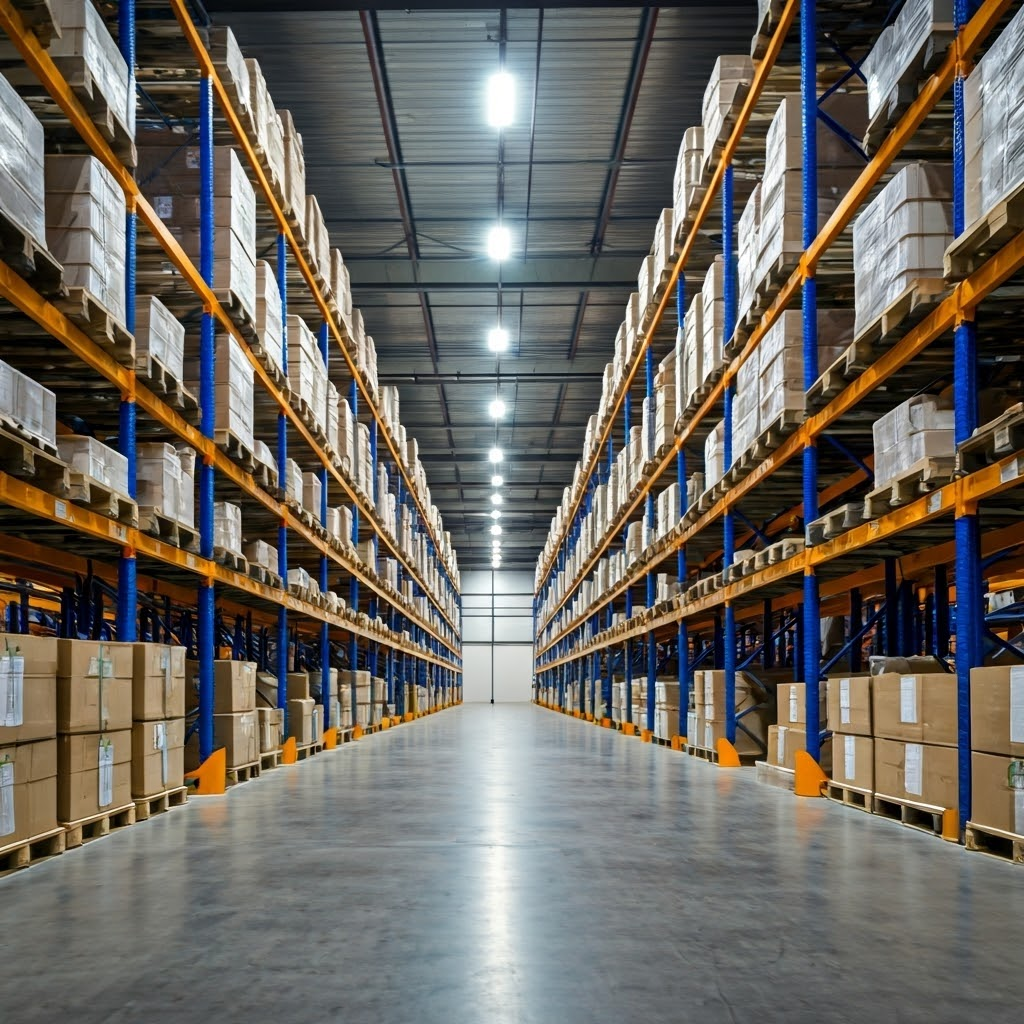Introduction
The logistics industry is evolving rapidly, and artificial intelligence (AI) is at the forefront of this transformation. With AI development services advancing at an unprecedented rate, businesses are increasingly adopting AI logistics solutions to optimize supply chain operations, reduce costs, and enhance efficiency. AI-powered technologies like automation, predictive analytics, and route optimization are changing the way logistics and transportation are managed. In this article, we will explore the significance of AI development in logistics management and how it is shaping the future of supply chains.
What is AI in Logistics?
Artificial Intelligence in logistics refers to the application of AI technologies to automate, streamline, and improve various aspects of supply chain management. AI development has enabled businesses to optimize transportation, reduce human error, predict future trends, and make data-driven decisions.
AI development for logistics management includes several core technologies such as:
- Machine Learning (ML): Analyzes data to identify patterns and predict trends in supply chain processes.
- Natural Language Processing (NLP): Helps in automating customer support and communication tasks.
- Robotics Process Automation (RPA): Automates repetitive tasks such as inventory management, reducing manual labor.
- Predictive Analytics: Anticipates demand and optimizes resources accordingly.
By leveraging these technologies, AI helps businesses solve complex logistics problems, making operations smoother and more efficient.
How AI is Enhancing Logistics Management
AI logistics solutions are revolutionizing the way logistics companies operate. Here are some of the key areas where AI development is making a significant impact:
1. Logistics Optimization with AI
AI-powered logistics optimization is helping businesses improve route planning, reduce delays, and increase the efficiency of supply chains. By analyzing historical data, weather patterns, traffic conditions, and road network information, AI can generate optimized routes that reduce transportation time and costs.
This is especially useful for companies with a global footprint, as AI development allows for real-time optimization that adapts to changing conditions. Logistics optimization with AI ensures that deliveries are timely and that resources are allocated efficiently, providing a better customer experience.
2. AI in Supply Chain

AI plays a crucial role in supply chain management by improving decision-making, enhancing inventory management, and reducing operational risks. AI tools such as predictive analytics and demand forecasting enable businesses to anticipate supply and demand fluctuations and adjust their strategies accordingly.
With AI, businesses can monitor the entire supply chain in real time, detect inefficiencies, and identify opportunities for improvement. By automating repetitive tasks and providing actionable insights, AI helps supply chain managers make more informed decisions, leading to reduced costs and faster operations.
3. AI for Transport Management
AI development is also revolutionizing transport management by automating critical tasks such as vehicle scheduling, load optimization, and fleet management. AI-driven systems can monitor vehicle performance, predict maintenance needs, and optimize load allocation to improve efficiency.
For instance, AI can assess vehicle capacity, delivery schedules, and route availability to ensure that the right amount of goods is delivered at the right time. This minimizes costs and reduces the chances of delays due to mismanagement of transportation resources.
4. Logistics Automation AI
Logistics automation AI eliminates the need for manual intervention in tasks such as sorting, packaging, and labeling. Automation not only reduces labor costs but also increases operational speed and accuracy. AI-powered robots and drones are now used in warehouses to carry out repetitive tasks such as moving goods from one location to another.
By incorporating robotics and automation into logistics processes, companies can handle larger volumes of goods without the need for human labor, reducing errors and improving delivery times. Logistics automation AI is a game changer for businesses looking to scale up their operations without compromising on quality or speed.
5. Route Optimization AI
Route optimization AI focuses on reducing the time, distance, and fuel costs associated with transportation. AI algorithms analyze historical data, weather forecasts, and real-time traffic updates to suggest the fastest, most efficient routes for drivers.
Route optimization AI ensures that delivery drivers avoid traffic congestion, roadblocks, and other obstacles, saving time and fuel. This not only cuts operational costs but also reduces the carbon footprint of logistics operations, aligning with sustainability goals.
Benefits of AI in Logistics
AI development offers a range of benefits for logistics companies. Here are some of the most impactful advantages:
- Increased Efficiency: AI streamlines operations and eliminates inefficiencies by automating repetitive tasks and making data-driven decisions.
- Cost Reduction: AI-powered optimization reduces transportation and labor costs, while predictive analytics ensures that businesses avoid overstocking or understocking.
- Enhanced Accuracy: AI minimizes human error, leading to fewer mistakes in inventory management, shipping, and customer orders.
- Improved Customer Experience: AI helps logistics companies deliver goods faster and more reliably, improving customer satisfaction.
- Real-Time Data and Insights: AI provides businesses with real-time analytics, enabling them to make quick adjustments to changing conditions.
With these benefits, AI is enabling logistics companies to thrive in an increasingly competitive marketplace.
Implementing AI in Logistics: Key Challenges and Solutions
While AI holds immense potential for logistics management, implementing it successfully can come with challenges. Here are some common hurdles businesses may face and how to overcome them:
1. Data Quality and Availability
AI development relies heavily on large datasets to function effectively. Ensuring that the data used is clean, accurate, and accessible can be a challenge for some organizations. To solve this, businesses must invest in robust data collection and management practices.
2. Integration with Legacy Systems
Many logistics companies still rely on legacy software and systems that may not be compatible with AI technologies. To overcome this, companies need to gradually integrate AI solutions with their existing infrastructure, allowing for seamless transitions.
3. Workforce Adaptation
The introduction of AI development in logistics requires employees to adapt to new technologies. Providing proper training and upskilling opportunities can ensure that the workforce is ready to work alongside AI systems.
Future of AI in Logistics

The future of AI in logistics is incredibly promising. As AI technologies continue to advance, they will enable even more sophisticated logistics management systems. Some potential future trends include:
- AI-driven autonomous vehicles: Self-driving trucks and drones will revolutionize last-mile delivery and reduce human intervention.
- AI-powered predictive maintenance: Predicting when vehicles or machinery will need maintenance will further minimize downtime and improve efficiency.
- Enhanced supply chain visibility: AI will provide end-to-end visibility across the entire supply chain, improving transparency and communication.
The continuous AI development will make logistics management more efficient, cost-effective, and adaptable to changing market demands.
Conclusion
AI development is transforming logistics management, helping businesses optimize their operations, reduce costs, and improve customer satisfaction. From AI logistics solutions and route optimization to logistics automation and predictive analytics, AI is revolutionizing every aspect of the supply chain. As AI technology continues to evolve, its impact on the logistics industry will only grow stronger.
If you’re looking to harness the power of AI to improve your logistics management, consider partnering with Beyond AI. Visit our Contact Us page today to learn how our AI development services can streamline your supply chain and help you stay ahead of the competition.
Frequently Asked Questions
What is AI logistics?
AI logistics refers to the application of artificial intelligence technologies to optimize supply chain management, including transportation, route planning, inventory management, and customer service.
How does AI improve logistics management?
AI improves logistics management by automating tasks, optimizing routes, predicting demand, and enhancing decision-making through data-driven insights.
What are the benefits of AI in logistics?
AI benefits logistics by increasing efficiency, reducing costs, improving accuracy, enhancing customer satisfaction, and providing real-time data insights.
Can AI replace human workers in logistics?
While AI automates many tasks, human workers are still essential for overseeing AI systems, making strategic decisions, and managing exceptions. AI enhances human capabilities rather than replacing them.











